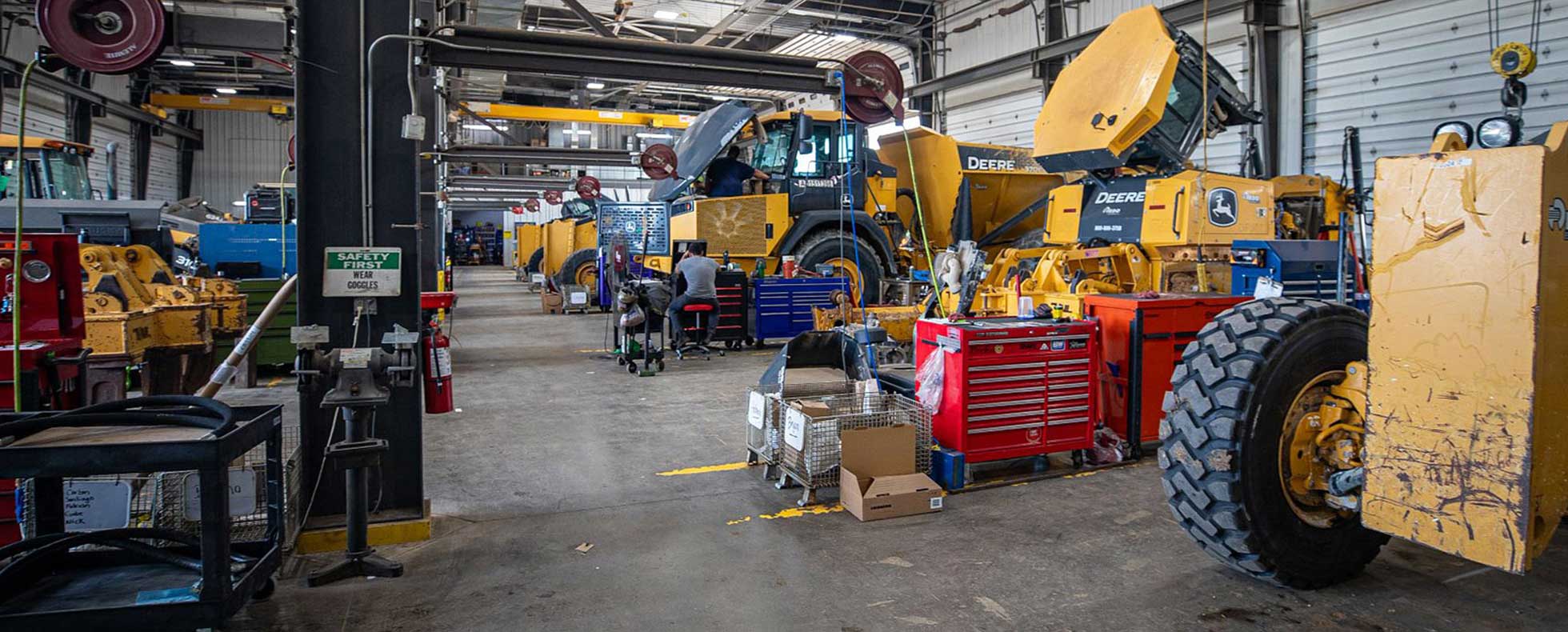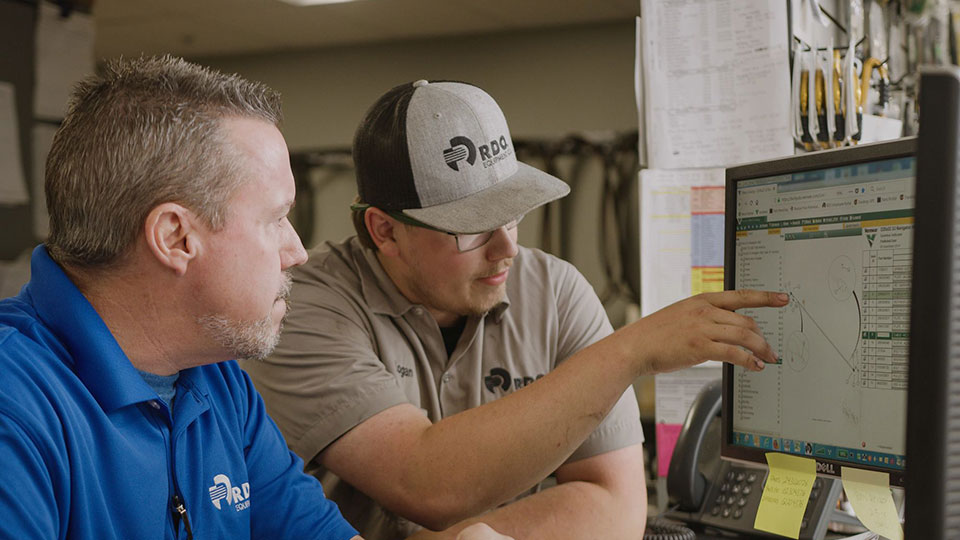
Feeling safe at work is a non-negotiable for you, as it should be. As a mechanic, the work you do is crucial to helping your company grow and its customers succeed.
Working in this profession can be dangerous, though — especially if you work on large machinery (like semi trucks, construction equipment or agricultural implements).
Feeling comfortable at work every day, whether in the shop or out in the field, doesn’t need to be difficult.
RDO employs more than 1,000 full-time technicians in 85+ locations across 12 states.
Our company has detailed systems created to promote a safe environment for our technicians. For more than seven years, I’ve spent time helping these RDO team members be safer at work.
As a diesel mechanic, there are several things you can do to stay safe, regardless of what company you work for or what equipment you work on. In this article, I’ll explain six important safety practices to help you do just that.
This is a huge part of being safe as a technician. Before you start any job, make sure to analyze the work that needs to be done and what potential hazards could arise as you perform it.
This includes assessing all hazards and identifying solutions to them. Your employer should require this type of prep before work begins. Some, like RDO, may ask you to document all hazards you see and what you’ll do to avoid them.
When performing these assessments, identify:
If you have any questions or concerns, always bring these up to members of your service team or leadership before beginning work.
Proper communication is another important part of staying safe as a diesel technician. This means a few different things:
Learning from others and talking things through with them is a great way to promote a safer environment for yourself and the people around you. Communication is a key part of your safety as a technician.
Stop work authority is a policy that gives you, as an employee, the right to stop working on something when you find a potential hazard or unsafe conditions.
As a technician, you have the right to decide whether work progresses or if you need to shut it down while safety concerns are addressed. You can do this at any time throughout the life of a work order.
My advice is to take advantage of your SWA whenever you feel uncomfortable. Don’t put yourself in an unsafe position by using SWA to your advantage.

Your company will have some safety protocols in place to promote a safe environment.
Make sure to follow protocols for things like:
These are in place to keep you safe. If you have questions about the protocols in a certain situation, ask your manager or colleague for confirmation.
Many things are happening in the shop environment — technicians perform repairs, move equipment, use overhead cranes, use welding torches, and the list goes on.
With all of this commotion, there’s always a safety risk, especially when mechanics aren’t paying attention or are distracted. Trying your best to avoid distracting yourself or others, particularly when they’re working, is important for your safety.
Sign Up: Service Technician Monthly Newsletter
Become a more profitable, successful mechanic with insights and resources sent to your inbox every month.
This last point is very important. Your safety is more important than how quickly you complete jobs. It’s not uncommon for injuries or incidents to occur when a technician is rushing to complete a project.
Instead, always take your time to perform safety assessments, eliminate or isolate any hazardous energy, ensure you’re using proper PPE, ask questions of others in the shop when you have them and use best practices for performing work.
Do your work at a steady pace. In the end, you’ll get more jobs finished safer.
Conducting thorough JSAs, clearly communicating with those around you, acting professionally, wearing proper PPE, using SWA, following safety protocols and avoiding rushing will all make you a safer mechanic.
However, safety should also be a cornerstone of your organization’s culture. The safest employers promote team member safety in everything they do — from the service shops to the field.
If you’re concerned about your safety, you’ll want to choose a company that shares your commitment to it.
To help you find one, your next step is to read How to Choose a Company to Work for as a Diesel Technician (7 Tips).
The safety of every RDO team member is our top priority. Our internal safety department (which I work within) is committed to improving the safety of every RDO location throughout the U.S.
If you’re ready to join a company that takes safety as seriously as you do, discover RDO’s service technician careers today.
If you have any questions, don’t hesitate to contact our careers team. We’re more than happy to help you build a career you’re proud of.